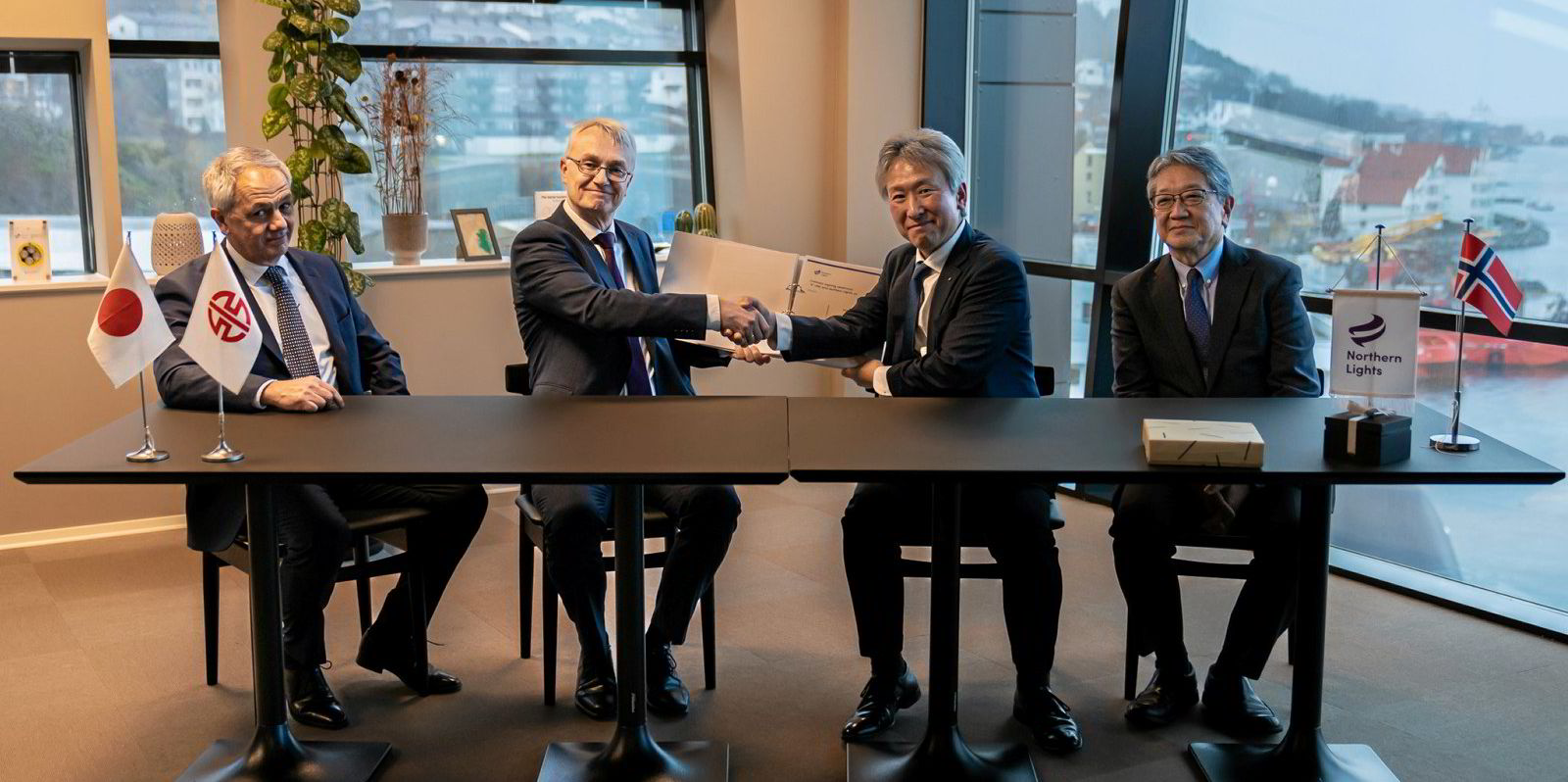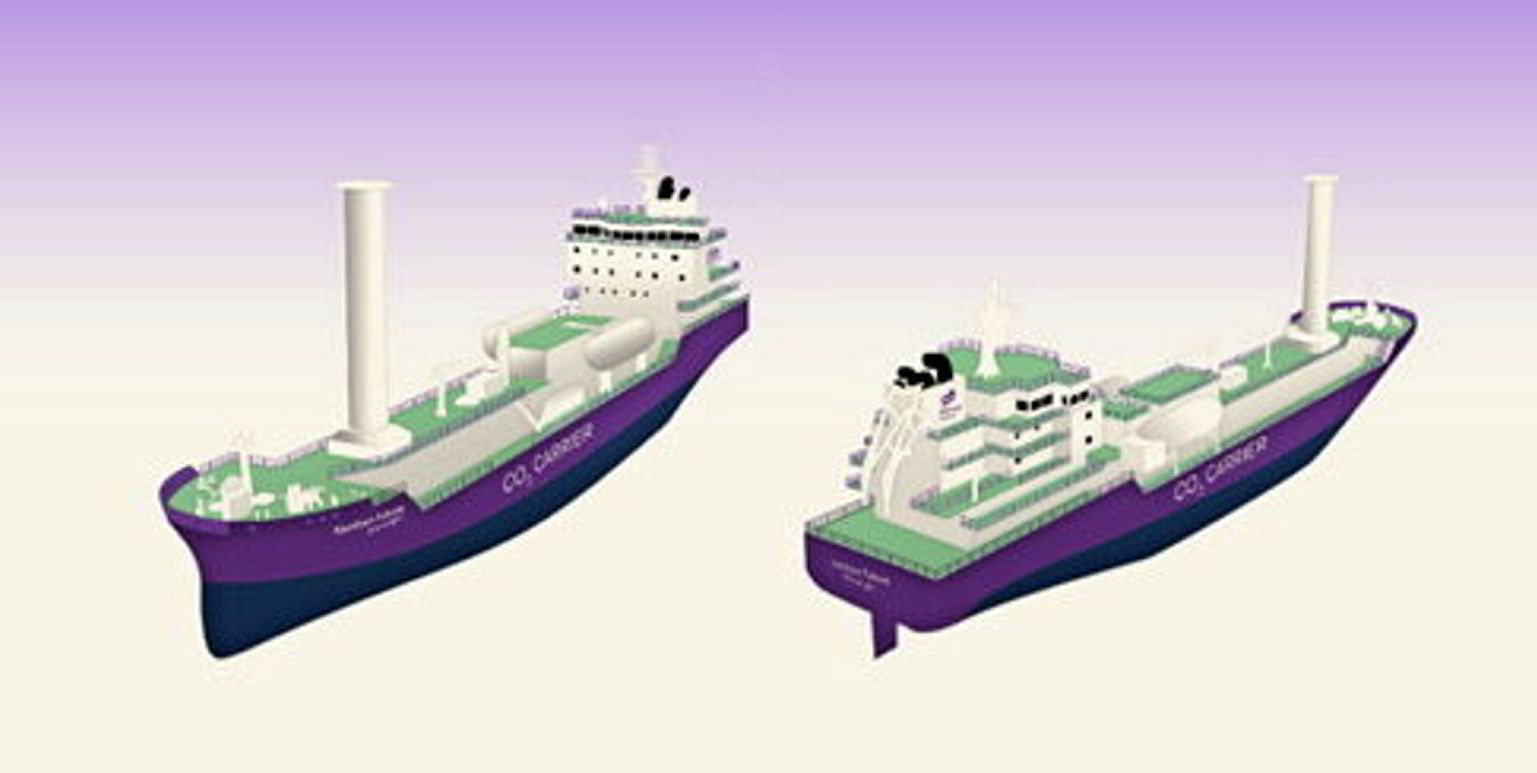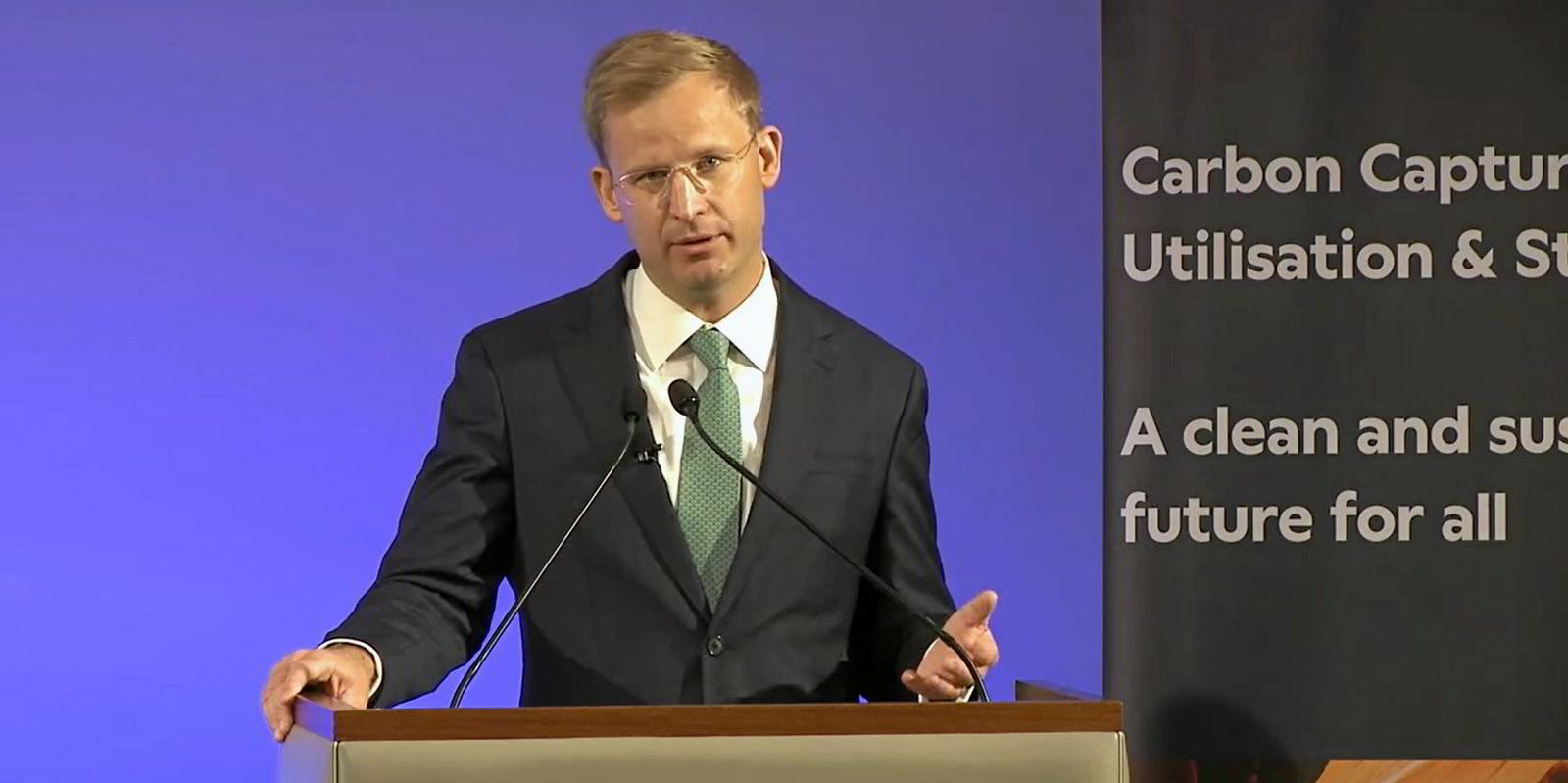Norway’s carbon capture and storage (CCS) specialist Northern Lights expects to order two additional liquefied CO2 (LCO2) carriers to handle the volumes it has agreed to lift and store for ammonia and fertiliser producer Yara.
Northern Lights managing director Borre Jacobsen told TradeWinds the project will need two vessels of the same capacity as the pair of 7,500-cbm ships it has already contracted at Dalian Shipbuilding Industry Co for delivery next year.
“We do expect that we will order those ships within the next few months,” he said.
Jacobsen declined to speak about the shipyard for these next-up vessels or the cost of its first newbuildings.
Brokers have previously pegged these pioneering ships, which are to be fitted with Norsepower and air lubrication systems to cut their carbon intensity, as in the region of $52m to $53m each.
In August 2022, Yara Sluiskil signed the world’s first commercial agreement on cross-border CO2 transportation and storage with Northern Lights — a grouping of Norway’s Equinor alongside energy majors Shell and TotalEnergies — to ship 800,000 tonnes per annum of CO2 from the Netherlands.
With the Yara deal, the joint venture partners declared it had filled the project’s phase one capacity of one million tonnes per annum.
Phase two will see the project upgraded to handle 5.2 mtpa. Jacobsen said it is hoped that a final investment decision will be made on this in 2023 with additional ships needed to handle the increased volumes.
In September, this publication referenced the phase two ships as 12,000-cbm vessels. The managing director said initial enquiries for the newbuildings in the market may have started early rumours about them.
Jacobsen was speaking as a key official when Northern Lights and K Line held a signing ceremony for the management deal on the first two pioneering newbuildings for the project in Stavanger.
The event was attended by a delegation from K Line, including executive officer for LNG and carbon neutral promotion Satoshi Kanamori.

Under the agreement, while Northern Lights will own the newbuildings, K Line will take them in on a long-term bareboat deal and time-charter them back to the project.
Kanamori said that LNG shipping in combination with LCO2 carriers is one of the three primary business areas for K Line under its midterm business plan.
He said K Line, which is working on a small-scale LCO2 carrier demonstration project in Japan and has teamed with Petronas, Japex and JGC on a CCS development study in South East Asia, has seen the CO2 shipping sector start to move from concept to reality over the past 12 months.
Northern Lights shipping manager Baris Dolek said the company had been “overwhelmed with shipowners’ interest” in this business, which he said started even before the company launched its formal competitive tender, with approaches from more than 30 owners.
Dolek said cost, agency, reputation and Northern Lights’ shareholders’ own experience with the shipowner was key in selection. But he also highlighted that being a first-of-a-kind project and a small 50-person company, it was helpful that K Line was able to be flexible and offer assistance that went beyond normal contractual terms.
There could be many more opportunities for owners interested in the sector.
Jacobsen said Northern Lights thinks the potential market for CO2 storage in Europe is above 300 mtpa by 2050.
The company believes that the CO2 transportation and storage market in northwest Europe will grow quite quickly in the next 10 years with a combination of shipping and pipeline solutions.
He said with this growth it is likely that the market will see companies specialising in different parts of the value chain and ultimately Northern Lights will not likely own and control all the shipping for the CO2 it has.
All the big emitters in Europe have committed to be net zero by 2050 and be some way to this goal by 2030 and for many, there is a chunk of CO2 that there are not many alternatives for except CCS, he said.
He also flagged up a more positive attitude to CCS from Germany, which had previously been resistant to storing CO2 onshore.
Jacobsen said the main challenge for CCS is to get the cost of transportation and storage cheaper and competing with the EU Emissions Trading System as at the moment it is cheaper to emit CO2 than to capture and store it.
He welcomes the other emerging CCS players and projects for the market to get up to the scale it needs.
- Northern Lights is currently developing the onshore and offshore storage and transportation element of the Norwegian state supported Longship project to build a full CCS value chain.
- The project, which started construction in early 2021, is roughly 75% complete on the onshore and offshore scope and on track to finish this in 2024.
- The first two vessels will ship captured and liquefied CO2 into Northern Lights’ receiving terminal in Norway’s Oygarden, where it will be stored 2,600 metres under the seabed on the Norwegian continental shelf.
- Steel-cutting on the first of two 7,500-cbm vessels for the project started in November 2022 and these are set to go into service in the second half of 2024.
- The vessels will be the largest liquefied CO2 carriers in commercial operation.
- Each vessel will be fitted with two 3,750-cbm pressurised type-C cargo tanks.







